How can a supposedly welcoming group of people end up becoming so dangerous? It’s a question asked by many experts who’ve studied so-called “doomsday” cults during the past few decades, and by filmmakers Sonja O’Hara and Micah Stuart, who co-wrote and co-directed the newest episode of the acclaimed Daytime Emmy-nominated web series Doomsday, premiering March 1st on iTunes/Apple TV, Google Play, Amazon, Spectrum, Comcast, VUDU and Redbox.
Doomsday is set in the deceivingly utopian world of a millennial-targeted cult called “Yesterday’s Promise”. To the outside world, and to its newest yet naive recruits, the cult presents itself as a group dedicated to rejuvenating the stressed bodies and minds of its young members through the healing power of yoga. As some of them will learn to their regret, though, the calming atmosphere of this “retreat” has a much darker side creeping behind it.
Living under the wing of its matriarchal yet tyrannical leader, Dagny (Karin Agstam), the sect’s most fervent devotees include her consigliere and equally strict taskmaster Joshua (Jaspal Binning, who also co-produced the series), rebellious and seductive recruiter Camden (played by O’Hara), the direction-seeking former high school custodian Keith (Donald Paul), and the group’s resident outcast/ex-girlfriend of Camden, Sorrell (Alice Kremelberg).

L-R: DOOMSDAY co-stars Sonja O’Hara (“Camden”, also the series’ creator/co-writer/co-director), Mark St. Cyr (“John”), Karin Agstam (“Dagny”), Ellen Toland (“Annie”), Sara Cicilian (“Ophelia”) and Alice Kremelberg (“Sorrell”). Photo courtesy Dan McBride.
Blending character-driven drama with an investigatory flair present in the show’s final few episodes, Doomsday zeroes in not just on the cruelty of its main cult, but also on the destructive impact it has on those who tried to break free from it.
Its dual past/present narrative effectively brings both insidious aspects of the cult into sharp relief, when its charismatic prophet leads her intellectually brainwashed flock into their final, most senseless group activity: death. O’Hara and Stuart recently talked about how their series’ terrifying yet compelling glimpse into the world of cults was developed.
Chris Hadley: What (and/or who) inspired you to create this series?
Sonja O’Hara (creator/co-writer/co-director/co-star, “Camden” – Doomsday): I was specifically interested in exploring what makes people actually drawn to these situations. …We’ve all seen, ad nauseam, the horrific conditions and human rights violations that occur in cults after you’ve joined, but everything has its duality and I was intrigued with the seductive desire and community experience that pulls you in initially. The world of Doomsday has a sense of joy and play that makes you get, in some small way, why these young people stay and why they’re rooting for the future of this idyllic, green community. Before shit hits the fan, anyway.
CH: In what ways did the stories of actual cults (Scientology, Jonestown, the “Moonies”, Heaven’s Gate, etc.) inspire the fictional yet dangerous one we see in Doomsday?
Micah Stuart (co-writer/co-director, Doomsday): We were inspired by so many of those incredible real life stories that have emerged from individuals who have been involved in cults around the world, but we didn’t want to just single out any one to portray. Creating a fictional organization from an amalgamation of these groups allowed us much more freedom and creativity to take the story in many directions.
CH: Were the show’s characters inspired in any way by the stories of actual cult survivors, or were they inspired by a mixture of different experiences?
Sonja: When I attended an advance screening of the documentary Holy Hell [Will Allen’s 2016 film about the infamous ‘80s Hollywood cult Buddhafield] a number of years back, I had the great privilege of speaking with an actual member of a former sex cult. His stories (both onscreen in the doc and what he shared with me confidentially in person) just blew my mind. The life long PTSD (post-traumatic stress disorder) you’d endure after years in one of these places…I couldn’t get it out of my head. There’s just so much material here and I became obsessed.

L-R: DOOMSDAY co-stars Sonja O’Hara (as Camden) and Sara Cicilian (as Ophelia). Photo courtesy Dan McBride.
CH: With your research into cults as a major part of the development process for Doomsday, how did that research help you to create the series’ overall world and narrative?
Micah: There are definitely some wild things that happen in Doomsday but we also wanted to keep it grounded, so researching these organizations and borrowing ideas selectively was a key part of that.
CH: What was the production process like for Doomsday?
Sonja: You know, after going on to make many other projects, I can say making Doomsday is probably the happiest I’ve ever been on a set. I felt so fulfilled. Acting, writing and directing something so weird and personal and getting to do it with your closest friends is probably the best job in the world. We were all doing everything and wearing so many hats in the beginning.
When we lost our chef in the middle of filming, cast members stepped up and cooked for everyone. Karin [Agstam, who plays cult leader Dagny] would be switching between producing, acting and breastfeeding her infant son. Yet somehow everything got done and the work felt spontaneous and important. The reactions from fans of the show have been both unexpected and deeply meaningful, and the Emmy nomination (for outstanding daytime series) was absolutely surreal.
CH: How will Doomsday help audiences understand the overwhelming power and corruption of cults and their leaders while also weaving a compelling narrative through its characters and story?
Sonja: I think that when you’re making a project that has overarching cultural significance or is touching on a real life, you can’t think about what others will take away from it too much, or you’ll be overwhelmed and won’t even know where to begin. I was telling a personal story and as much as you hope it will be well received, I truly think that the more specific, the more universal.
Micah: While our cult is fictionalized, we are still able to take people deep within the psyche of the leader and its members and explore the motivations that bring people into these situations. By intimately following a number of characters we start to get a sense that everyone is in it for their own unique reasons – some selfish, some spiritual, and some that are deceptive, and it adds even more dimension and nuance to the story
CH: Besides all the acclaim that you and Doomsday’s outstanding cast and production team have received as a result of the show being out there, talk about the impact that making this project has had on you personally.
Micah: On a personal level, the research process has been a catalyst in helping me understand the mindset of people who are involved in these situations. It’s easy to be dismissive of these followers because from the outside we can so clearly see the situation they have found themselves in, but as clearly portrayed in the NXIVM documentary [The Vow, seen on HBO], very intelligent people can find themselves ensnared in these ideologies.
Sonja: On the flip side, I don’t think it’s hyperbole to say that making Doomsday changed my professional life significantly. One minute I’m making a micro-budget web series and the next thing I knew I was being asked to speak at SXSW (South By Southwest) on a TV panel alongside the producers of Netflix’s Wild, Wild Country.

L-R: Mark St. Cyr (as John) and Sara Cicilian (Ophelia) in a scene from DOOMSDAY. Photo courtesy Dan McBride.
(In 2017) I was chosen as one of [Independent Magazine’s] “Ten Filmmakers To Watch” [past recipients include Oscar-winning Barry Jenkins, Moonlight], signed with my dream agency, sold a series and was offered to direct multiple features. It was all very surreal. It shows that making personal work can pay off.
I’ve always thought I’d have to sell out to get notice in this fickle industry, but now I think you just have to write what moves you and the rest can come. [Doomsday co-star/co-EP/co-director Jaspal Binning was also on Independent’s 2017 “Ten Filmmakers To Watch” list with O’Hara].
CH: Will there be further seasons of the show planned, and if so, when can we expect production to start on those?
Sonja: We’ll see! I wish we could give a more specific answer here but the honest truth is that we live in a world of metrics and algorithms so if there’s a big enough audience and hunger for the show when it drops this spring, then certainly yes, new episodes would be made.
Micah: We would love to continue telling this story not only because we love these characters and find them fascinating to watch, but because it’s still a relevant conversation to keep having.
CH: What do you want audiences to take away from watching Doomsday?
Sonja: For me, it’s really about acceptance and tolerance. Maintaining empathy for these characters is paramount. Who would dare dismiss the testimony of kidnapping victims, yet we so often condemn ex-cult members for being gullible and naive. Doomsday illustrates that “Stockholm Syndrome” [a term to describe how those held captive strangely yet gradually grow closer to their captors] can happen to anyone in the right context.
NOTE: All episodes of Doomsday will be closed-captioned/subtitled across all streaming and on-demand platforms it airs on.

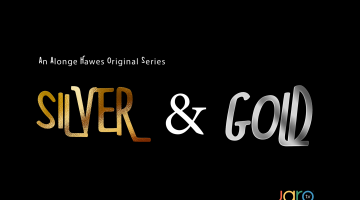

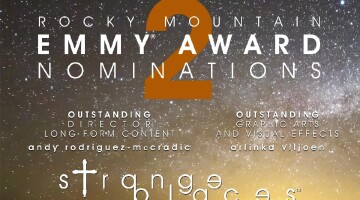
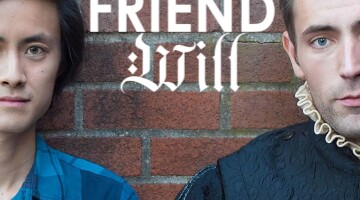
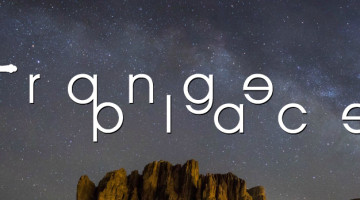
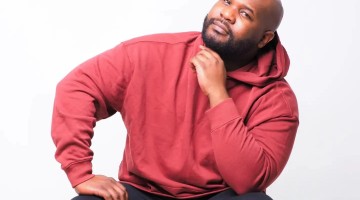
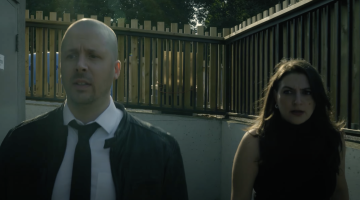
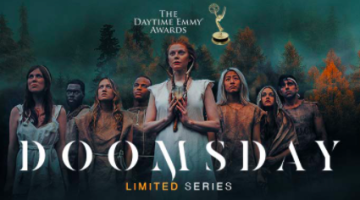
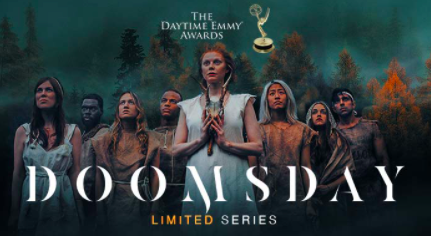
No Comment